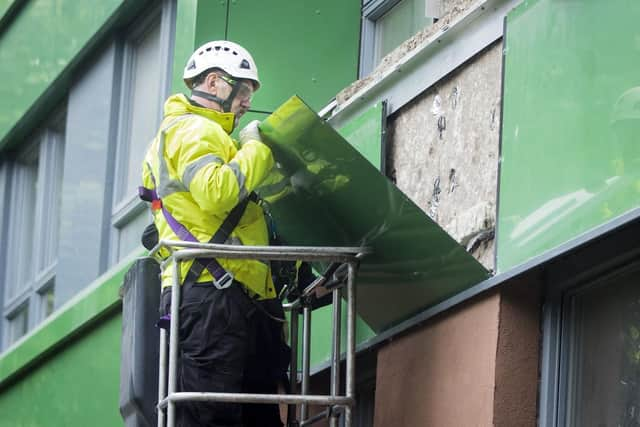Sheffield MP claims cladding works are being delayed by Government's failure to plan for labour shortages
After the issue was raised in a recent Public Accounts Committee (PAC) meeting, the Labour MP said shortages were causing delays to fire safety surveying works, as well as leaving developers unable to find contractors to complete works, adding that the Government has failed to produce a plan to solve the issue.
Her comments were also echoed by campaign group End Our Cladding Scandal, who said it had approached the Government about the issue multiple times since 2021.
Advertisement
Hide AdAdvertisement
Hide AdMs Blake said: “It's quite incredible how little planning and support the Government has put to this to make sure that those jobs are filled, that the industry is there, and that people are able to get on and get this work done, because people are obviously quite nervous about the properties they are in at the moment.


“It's quite clear that we knew that this was going to happen, and that there was going to be work that needed to be done, yet it's years later after Grenfell and we're still facing the fact that people are living in homes with unsafe cladding.”
A Department for Levelling Up, Housing and Communities (DLUHC) spokesperson said: “We are taking action to protect innocent leaseholders and ensure they are safe and secure in their homes.
“We have made substantial progress in making safe high-rise buildings with the most dangerous form of cladding, with 95 per cent of all buildings with unsafe ACM cladding now remediated or with work underway, rising to 100 per cent in the social sector.”
Advertisement
Hide AdAdvertisement
Hide AdACM cladding is the same type of cladding used in Grenfell Tower. Other types of cladding have also been found to be dangerous, including MCM cladding, which the Government banned on all new buildings last year.
The End Our Cladding Scandal campaign raised the issue of labour shortages with the Government in a meeting with housing ministers and officials in May 2021, and in a subsequent letter to then-prime minister Boris Johnson a month later.
The 2021 letter stated: “The Government’s actions to date have only created a perfect storm of driving up demand whilst impacting supply – there are severe constraints on the number of fire engineers to assess buildings and contractors able to undertake remediation work, along with insurance issues and concerns over materials supply.”
Giles Grover, co-lead of the End Our Cladding Scandal campaign, said: “The issue of capacity constraints is one we have highlighted directly to the Government countless times over the years, both in meetings with housing ministers and officials as well as in our letter, however, little firm action was taken and our calls for risk prioritisation were ignored.
Advertisement
Hide AdAdvertisement
Hide Ad“While there may have been some positive movement since Michael Gove first became Housing Secretary, the scale of this crisis has only increased dramatically with there now being residents in at least 10,000 unsafe buildings over 11 metres height still trapped in limbo. We fear that it will be many years, if not decades, before we see an end to the misery being suffered by innocent leaseholders across the country.”
Jeremy Pocklington, Permanent Secretary at the DLUHC, told the PAC the Government had provided £41 million of funding to support capability and capacity in the sector.